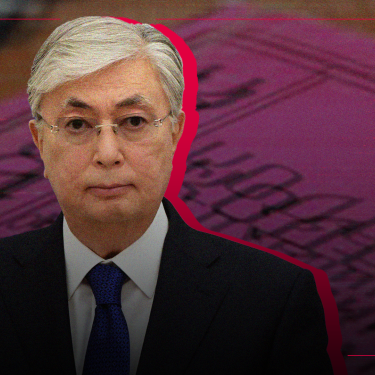Kazakhstan urged to rescind draconian new “fake news” law

Reporters Without Borders (RSF) calls for the immediate withdrawal of a law penalising “fake news” that is about to take effect in Kazakhstan. It aims to obstruct the work of independent journalists and bloggers and will allow a new form of censorship, RSF says.
Signed by President Kassym-Jomart Tokayev on 10 July and due to take effect on 10 September, the new law regulates the activities of journalists and bloggers very strictly and poses a new threat to independent Kazakh media.
One of the articles provides for heavy fines for posting and sharing “fake news” on the Internet (Administrative Code article 456-2). The law does not specify who determines the veracity of online content or what criteria are used. Its vague wording leaves a great deal of room for interpretation and opens the way to state censorship.
“Instead of protecting journalists and promoting media pluralism, President Kassym-Jomart Tokayev is providing himself with judicial tools for censoring and intimidating dissenting voices. This law represents another step in the wrong direction and RSF calls for its immediate withdrawal.
Legal Media Center, a Kazakh NGO, told RSF that the new law would probably result in more self-censorship in a country where the media landscape is already limited. “This law, which aims to make those who post online think twice, is likely to be applied only when it serves the interests of the authorities,” the NGO said.
Independent journalists in Kazakhstan are often subjected to violence and threats, as in several other former Soviet countries in Central Asia that have been adopting new draconian laws usually modelled on Russian legislation, since the launch of the large-scale invasion of Ukraine.
